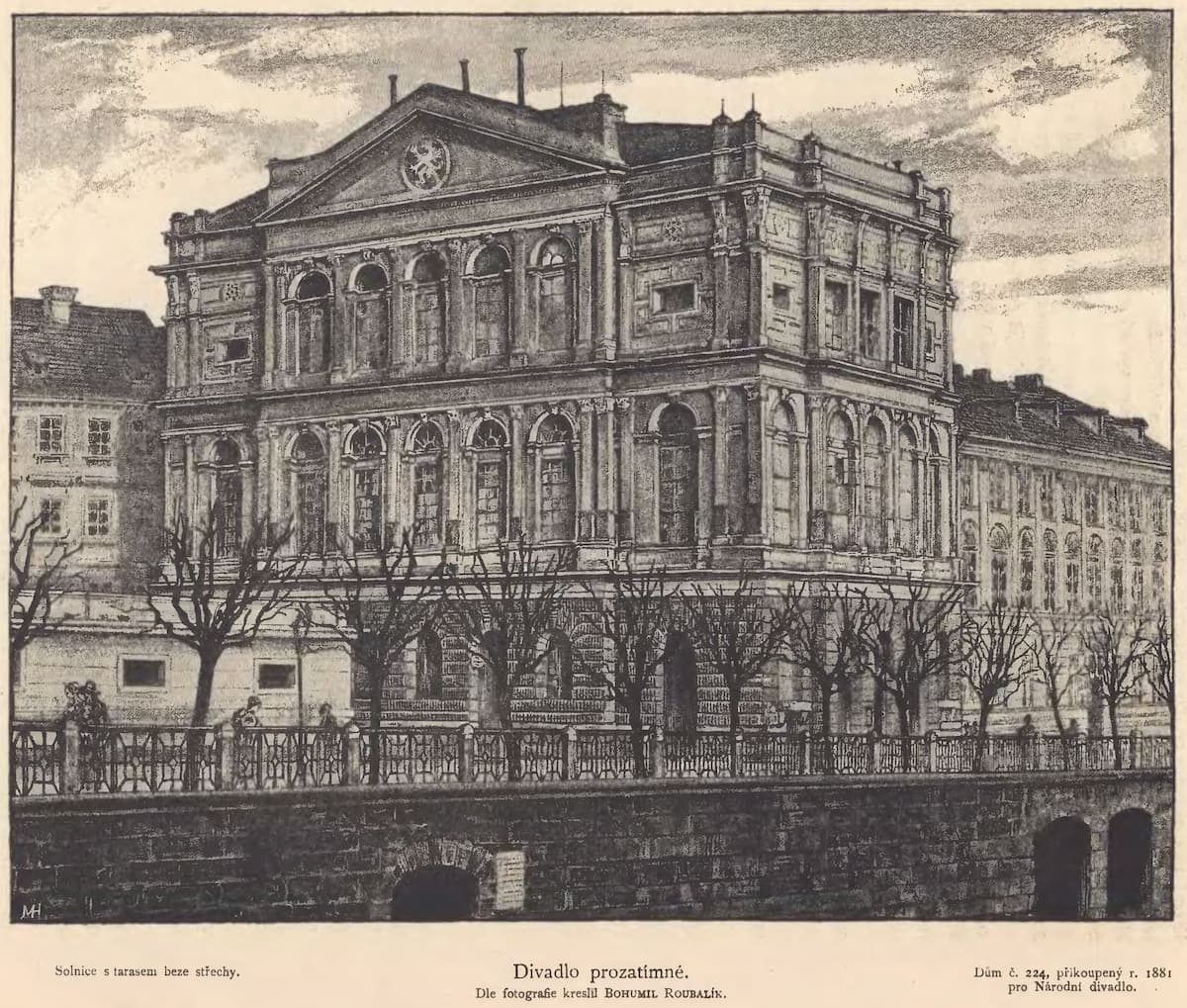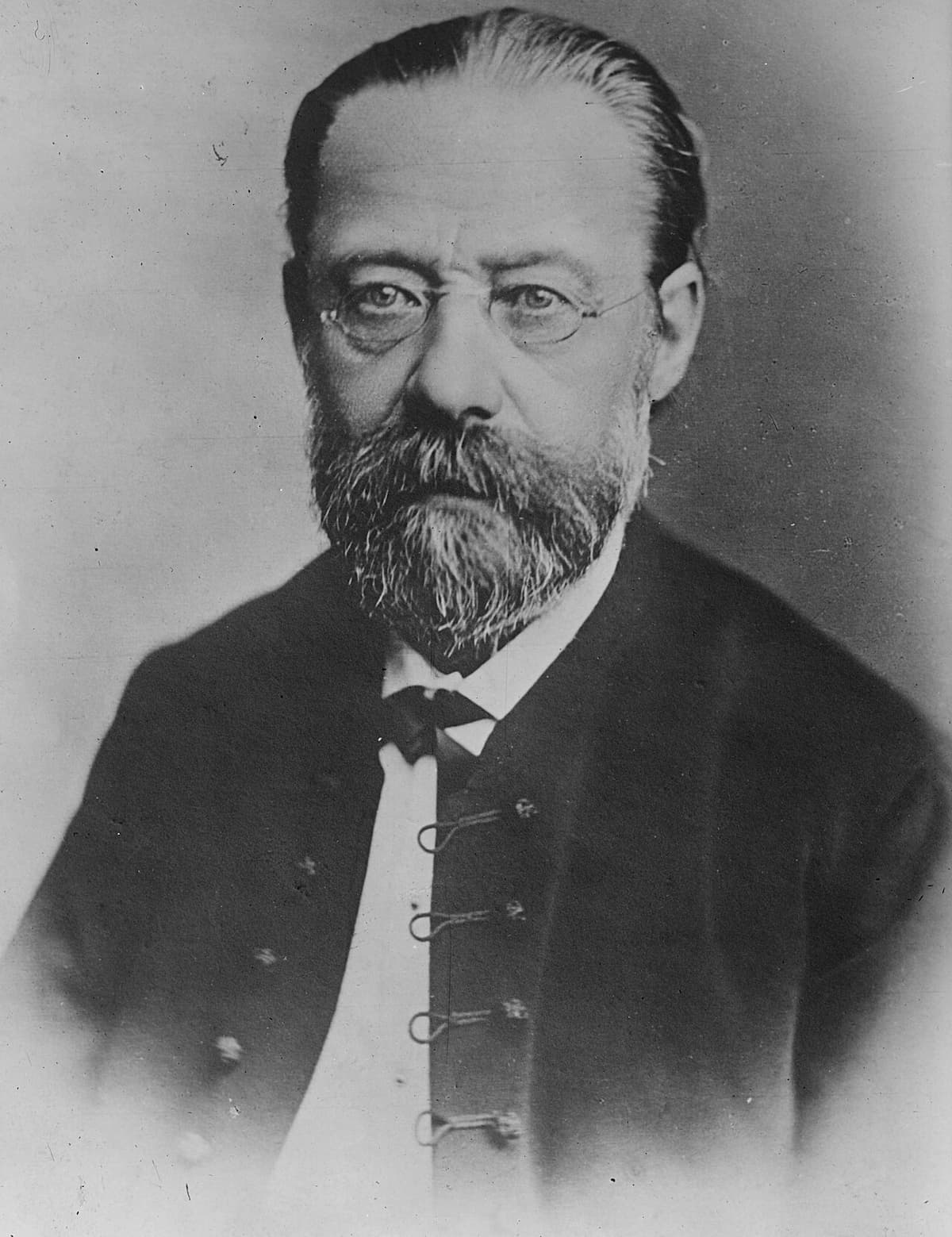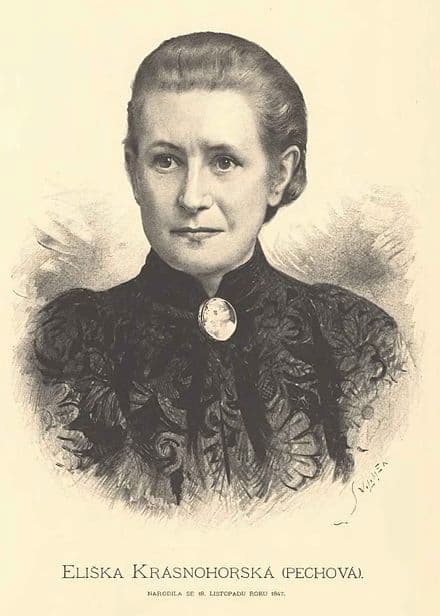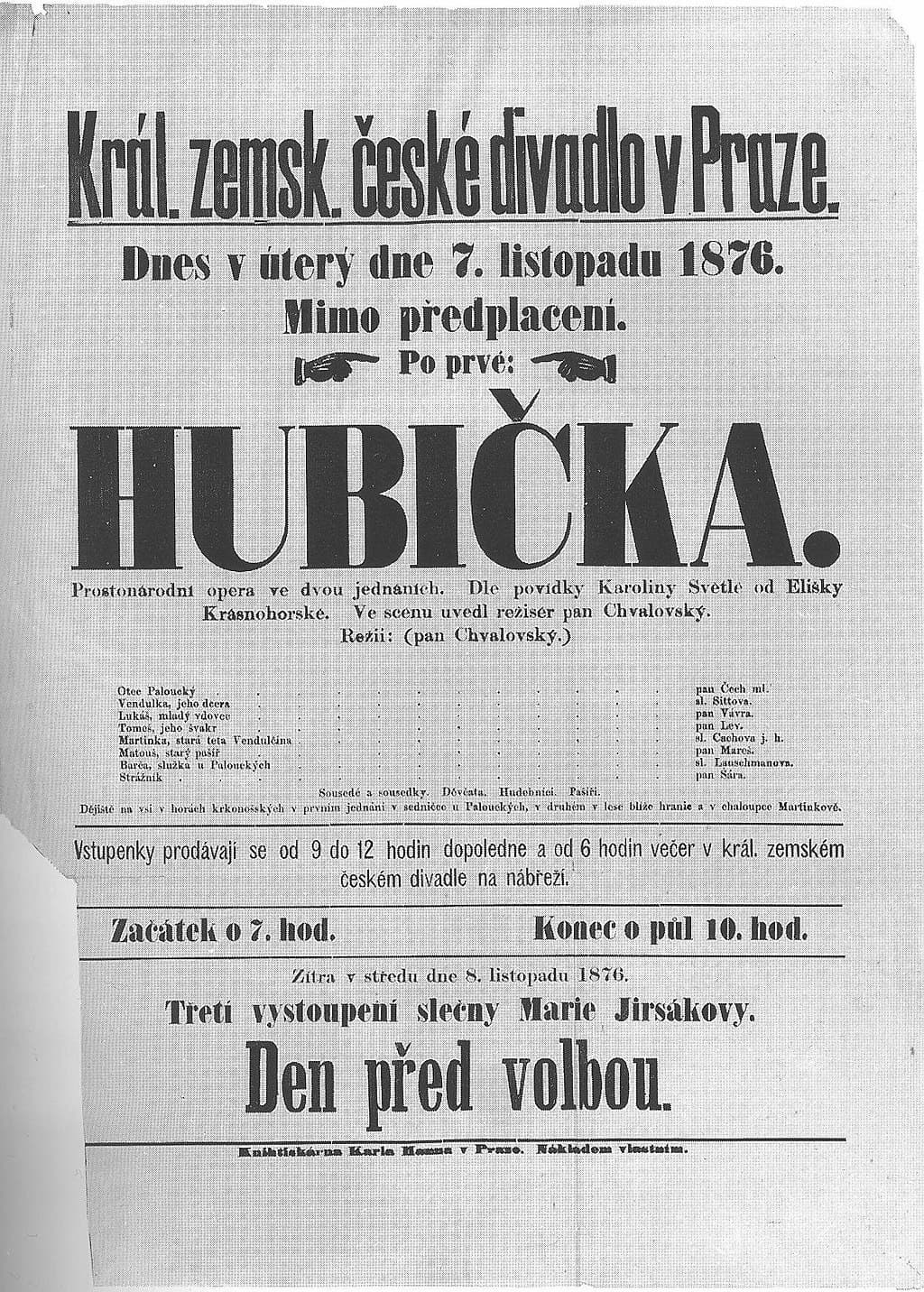The Provisional Theatre in Prague opened in 1862 as a temporary home for Czech drama and opera until a permanent National Theatre could be built. This venerable institution staged well over 5,000 performances over a 20 year span, and featured the premieres of four of Bedřich Smetana’s operas, including The Bartered Bride and The Kiss (Hubička) on 7 November 1876.
Bedřich Smetana: Hubička /The Kiss “Barce’s Song”
Background
During the mid-1860s, Smetana started an eight-year tenure as principal conductor and later artistic director of the Provisional Theatre. Smetana had orchestrated a hostile takeover from conductor Jan Nepomuk Maýr, and the rivalry led to frequent charges that Smetana was really not up for the job. Efforts to remove him from his post, and to reinstate Maýr, were unsuccessful, but by 1874, Smetana was losing his hearing.

Provisional Theatre in Prague
What had started as a minor throat infection resulted in a blockage to his ears and quickly progressed within a few months to a complete loss of hearing in his right ear. Shortly thereafter, he lost all hearing in his left ear as well. Like Beethoven, he sought medical treatment abroad—ingesting large quantities of mercury and enduring electric shock therapy— and also contemplated suicide. Hastily he wrote in his journal: “If my disease is incurable, then I should prefer to be liberated from this life.”
Bedřich Smetana: Hubička /The Kiss, “Overture” (Slovak State Philharmonic Orchestra, Košice; Robert Stankovsky, cond.)
The Kiss (Hubička)

Bedřich Smetana
Smetana’s deafness was the result of an advanced syphilis infection, which would ultimately rob him of his eyesight as well. However, he continued to compose, and in 1876 he received a libretto by Eliška Krásnohorská, a Czech feminist author who wrote works of lyric poetry, literary criticism, and also children’s literature. In fact, she was the first woman ever to be appointed as an ordinary member of the Czechoslovak Academy of Sciences and Art. Krásnohorská had always been interested in music, and The Kiss (Hubička), based on a novel by her good friend Karolina Světlá, initiated a collaboration with Smetana that would produce the last three operas of the composer’s career.
Librettist and composer engaged in a lengthy correspondence that highlights the creative process. Eliška considered the drafting of the libretto comparable to poetic activity, and she “knew how to advise Smetana on enhancing the opera.” In her opinion, the main problem of the librettists in those times was the tendency to underestimate the natural rhythm of words and the Czech musical recitation.
Bedřich Smetana: Hubička /The Kiss, “Cradle Song” (Renée Fleming, soprano; Philharmonia Orchestra; Sebastian Lang-Lessing, cond.)
The Plot

Eliška Krásnohorská
Lukas and Vendulka have always been in love, but his parents insisted that he marry another girl. Several years later, Lukas is now a wealthy farmer and widower, as his wife has died and left him with an infant child. Lukas wants to rekindle his affections for Vendulka, but this time they are opposed by her father, who declares them too fiery in tempers and too stubborn in nature for a marriage to work. He finally gives permission, and Lukas tries to kiss Vendulka but she refuses until they are married.
Lukas continues to try and kiss Vendulka, but again he is rebuffed. She fears that kissing Lukas before the wedding would disturb his wife’s ghost. Lukas is not too happy and drowns his sorrows at the local pub, freely kissing the village girls and humiliating Vendulka. Furious, Vendulka runs off to the forest to live with smugglers, and Lukas is regretting his behaviour. Eventually, Vendulka is persuaded to return home, and Lukas arrives to apologize. He publicly begs for Vendulka’s forgiveness before they finally kiss.
Bedřich Smetana: Hubička/The Kiss “Apologise to her, you fool” (Beno Blachut, tenor; Přemysl Kočí, baritone; Prague National Theatre Orchestra; Zdeněk Chalabala, cond.)
The Music

Premiere poster of The Kiss (Hubička)
This awkward story of rekindled romance has been called silly and even trivial. However, Smetana responded by creating a new type of opera, in which comedy is relegated to the background, and the artistic merit rests on tender lyricism combined with dramatic effect. Krásnohorská had written a text from the life of regular people, and Smetana interpreted this popular psychology through his musical setting.
While the story hinges on Vendulka’s refusal to grant her future husband a kiss, it is nevertheless one of Smetana’s most successful operas. As a scholar writes, “Its fervent lyricism is unforced, remarkably so, considering that this was Smetana’s first stage work after he became deaf, and the psychological penetration of the characters profound.” The sensitive musical portrayal of the two main characters is remarkable, as is the composer’s skill in achieving dramatic contrast. Smetana created an opera of folk-like charm and a depth of feeling that goes well beyond the outwardly simple story.
For more of the best in classical music, sign up for our E-Newsletter
